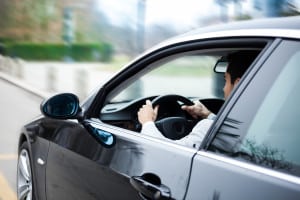 Driving a car requires a sharp mind that can process a great deal of information quickly. The reason we drive is to get from one place to another, and there is no safer way to get to a destination than remaining sober behind the wheel. But, “sober” can mean different things to different people, and there are times when a person has not been drinking alcohol but is under the influence of illegal drugs or other substances while driving. Either way, that’s a dangerous situation.
Driving a car requires a sharp mind that can process a great deal of information quickly. The reason we drive is to get from one place to another, and there is no safer way to get to a destination than remaining sober behind the wheel. But, “sober” can mean different things to different people, and there are times when a person has not been drinking alcohol but is under the influence of illegal drugs or other substances while driving. Either way, that’s a dangerous situation.
In many states, an impaired driver is just that: an impaired driver. It doesn’t matter whether you have been drinking or taking drugs (even prescription medications), if you are unable to safely drive your car because of a substance in your blood, then you can be charged with a DUI. Not only will you have to face the same financial penalties, license suspension and other consequences for an alcohol-related DUI, you could also be required to install an ignition interlock – even if it is your first DUI and regardless of whether you were under the influence of drugs or alcohol.
That drug-related DUI can also count toward a “habitual DUI offender” status, meaning that even if your state doesn’t require an ignition interlock until your second DUI conviction, your drug-related DUI could require you to install the device.
If you never drink alcohol, but have been convicted of a drug-related DUI, an ignition interlock device is a reminder that you must always remain sober behind the wheel. Each time you start your vehicle with an ignition interlock, your sobriety is being questioned. Each time you blow into the device, your answer should be the same: you are not under the influence of any drugs, medications, alcohol or other substances. That is the true definition of “sober,” and it is the best way to keep our roads safe.

Leave a Reply
You must be logged in to post a comment.